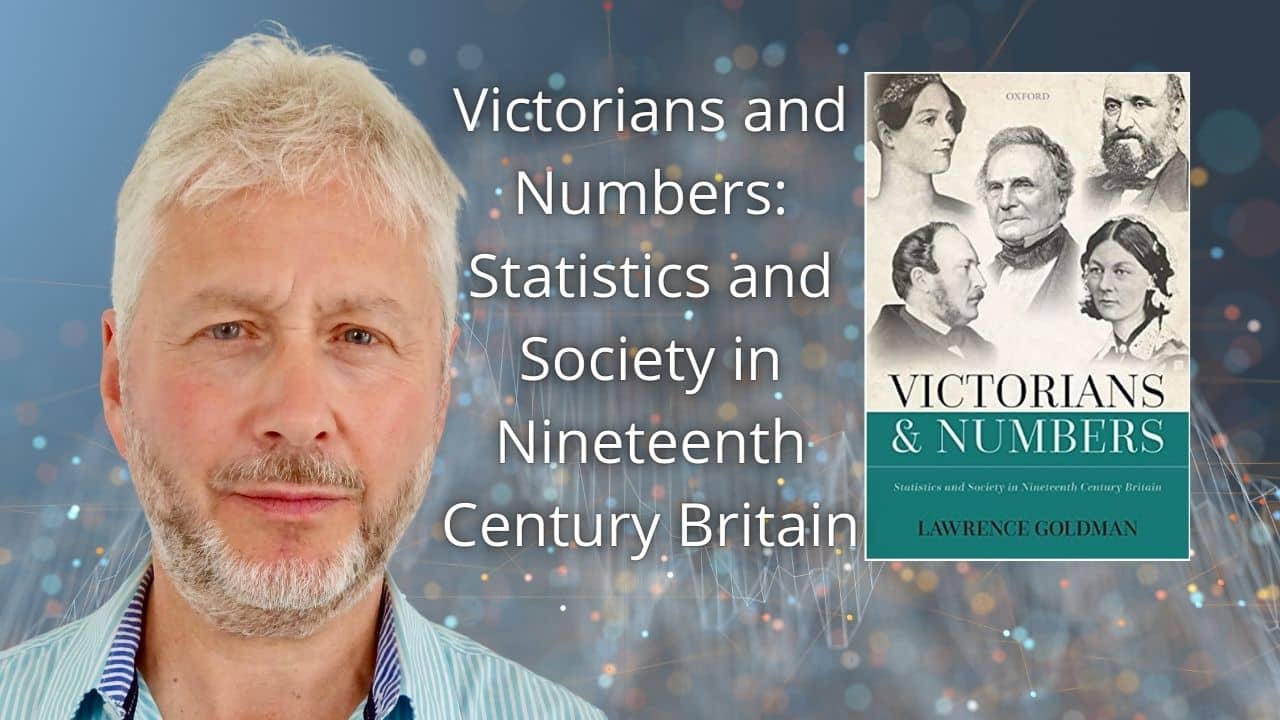As an Amazon Associate I earn from qualifying purchases.
On The Table Read, “The Best Book Reader Magazine in the UK“, Lawrence Goldman’s Victorians and Numbers brings to the fore the vision of those who believed that statistics would assist reforms to improve the social conditions and life chances of the people. More than a century after the demise of these visionaries, their legacy, the systematic collection and analysis of statistics, shapes the political, social, and intellectual life of contemporary Britain and the world more generally.
The fact that this edifying book was written at the height of Covid and at a time when endless statistics kept us abreast of the pandemic’s toll – both from a health and an economic perspective – hasn’t been lost on the author.
Victorians And Numbers
Bringing to fruition an idea that had been percolating with historian and author, Lawrence Goldman, since his days as a student at Cambridge, Victorians and Numbers is an influential read that explains how the origins of statistics assisted our understanding of the spread of disease and improved the health of all. It also links together Charles Babbage’s work on statistics in the 1830s to the original concept of the computer and ‘big data’.

Published by Oxford University Press, Victorians and Numbers’ roots are scholarly, but the repercussions of its revelations will appeal to everyone who uses numerical data in their work, to all those interested in the power and influence of statistics, and to anyone keen to learn more about the shaping of the modern world.

Statistics
A defining feature of nineteenth-century Britain was its fascination with statistics. The processes that made Victorian society, including the growth of population, the development of industry and commerce, and the increasing competence of the state, generated profuse numerical data.
This is a study of how such data influenced every aspect of Victorian culture and thought, from the methods of natural science and the struggle against disease, to the development of social administration and the arguments and conflicts between social classes. Numbers were collected in the 1830s by newly-created statistical societies in response to this ‘data revolution’.
They became a regular aspect of governmental procedure thereafter and inspired new ways of interrogating both the natural and social worlds. William Farr used them to study cholera; Florence Nightingale deployed them in campaigns for sanitary improvement; Charles Babbage was inspired to design and build his famous calculating engines to process them.
Social Philosophy
The mid-Victorians employed statistics consistently to make the case for liberal reform. In later decades, however, the emergence of the academic discipline of mathematical statistics – statistics as we use them today – became associated with eugenics and a contrary social philosophy. Where earlier statisticians emphasised the unity of mankind, some later practitioners, following Francis Galton, studied variation and difference within and between groups.
In chapters on learned societies, government departments, international statistical collaborations, and different Victorian statisticians, Victorians and Numbers traces the impact of numbers on the era and the intriguing relationship of Victorian statistics with ‘Big Data’ in our own age.
Lawrence Goldman
“Victorians and Numbers was largely written in 2020-2021 during the Covid-19 pandemic that ‘locked-down’ Britain and much of the world for months on end. Every day ended with a tally of fatalities. We compared death rates in different countries. We followed closely ‘the reproduction number R’, the average number of secondary infections caused by someone who already had the disease.

“As the data and statistics came thick and fast, the struggles of many of the figures examined in this book – James Kay-Shuttleworth and William Farr dealing with cholera, John Simon counting the victims of environmental disease, William Guy assessing the threats to occupational health, Florence Nightingale seeking a uniform method for the reporting of sickness – seemed all the more compelling. Indeed, the very subject itself, the history of statistics, took on a new relevance.
“I had always thought that my fascination with Victorian statistics, and with the attempts of our nineteenth-century ancestors to picture and explain their world numerically was essentially a private passion. Now, I discovered that everyone, with good reason, was interested ‘in the numbers’. The task I had set myself of explaining a formative period in the history of statistics in Britain no longer seemed obscure and academic. I found that people understood immediately and intuitively why this book was worth writing.”

About Lawrence Goldman
Lawrence Goldman was born in London and educated at Cambridge and Yale Universities. He was a Junior Research Fellow of Trinity College, Cambridge before moving to Oxford’s History Faculty where he taught British and American History for three decades and was a fellow of St. Peter’s College.
Between 2004 and 2014 he was the Editor of the newly published Oxford Dictionary of National Biography, the premier reference work on British History. He then became director of the Institute of Historical Research, University of London. He is the author of books on the history of Victorian social science and on workers’ education in Britain, and a biography of the historian and political thinker, R. H. Tawney.
He is now Emeritus Fellow of St. Peter’s College and Distinguished Fellow of the Rothermere American Institute, University of Oxford.
Find more from Lawrence Goldman now:
Published by Oxford University Press, Victorians and Numbers: Statistics and Society in Nineteenth Century Britain, is available in hardcover (£35.00) and Kindle format (£29.17) on Amazon at https://amzn.to/37fn6ii and https://amzn.to/3LHb68e
We strive to keep The Table Read free for both our readers and our contributors. If you have enjoyed our work, please consider donating to help keep The Table Read going!
Amazon and the Amazon logo are trademarks of Amazon.com, Inc, or its affiliates.

